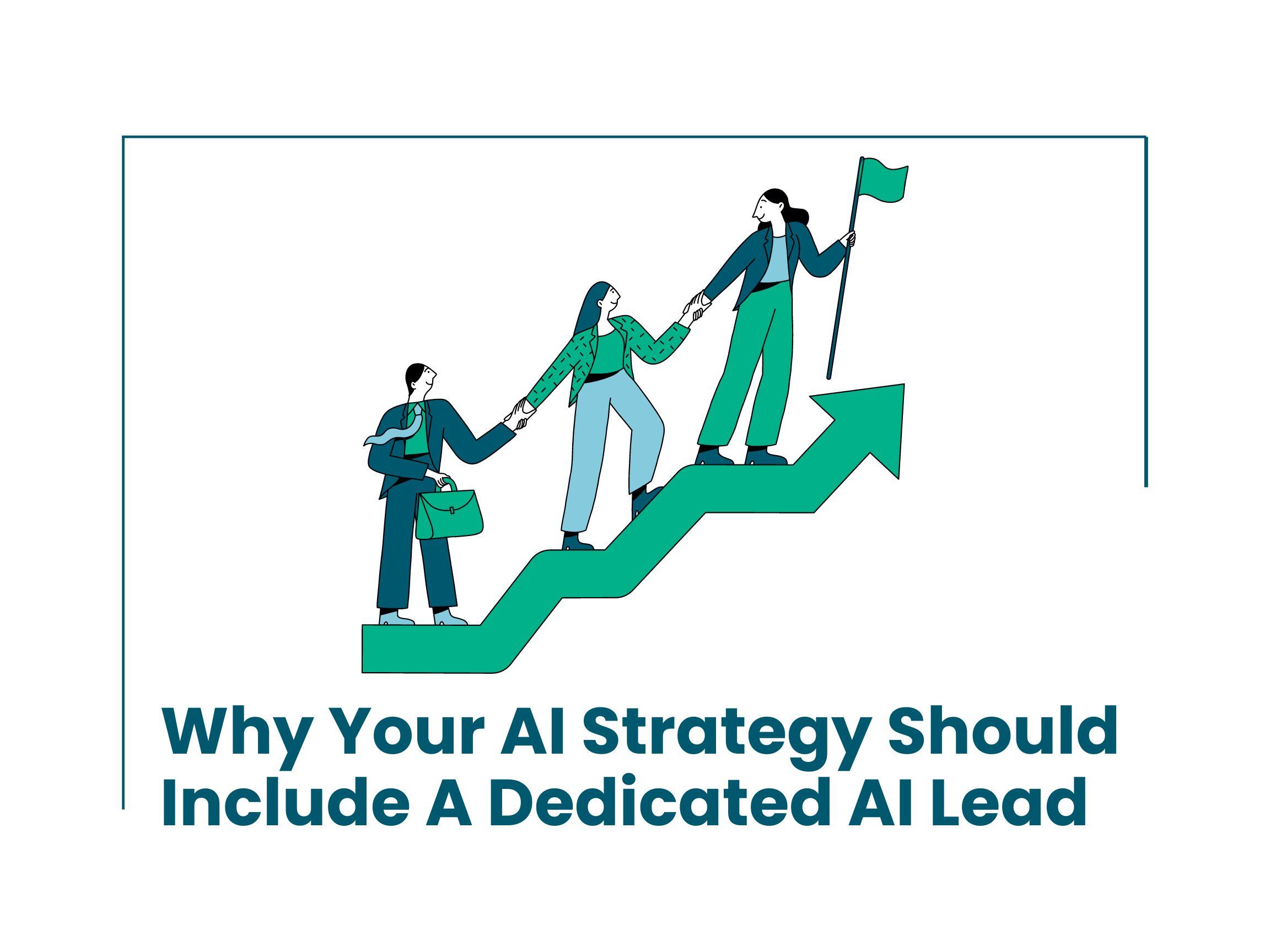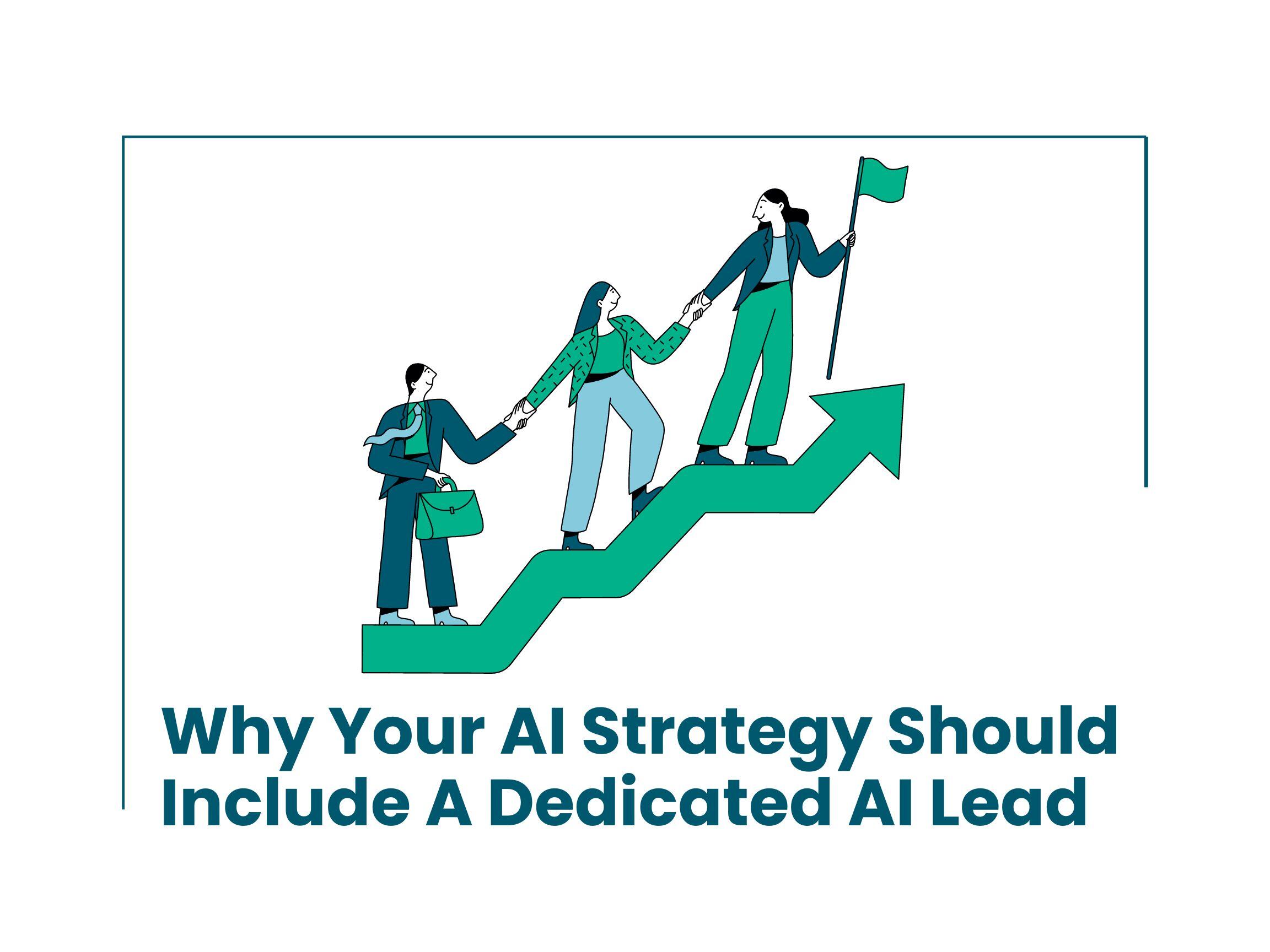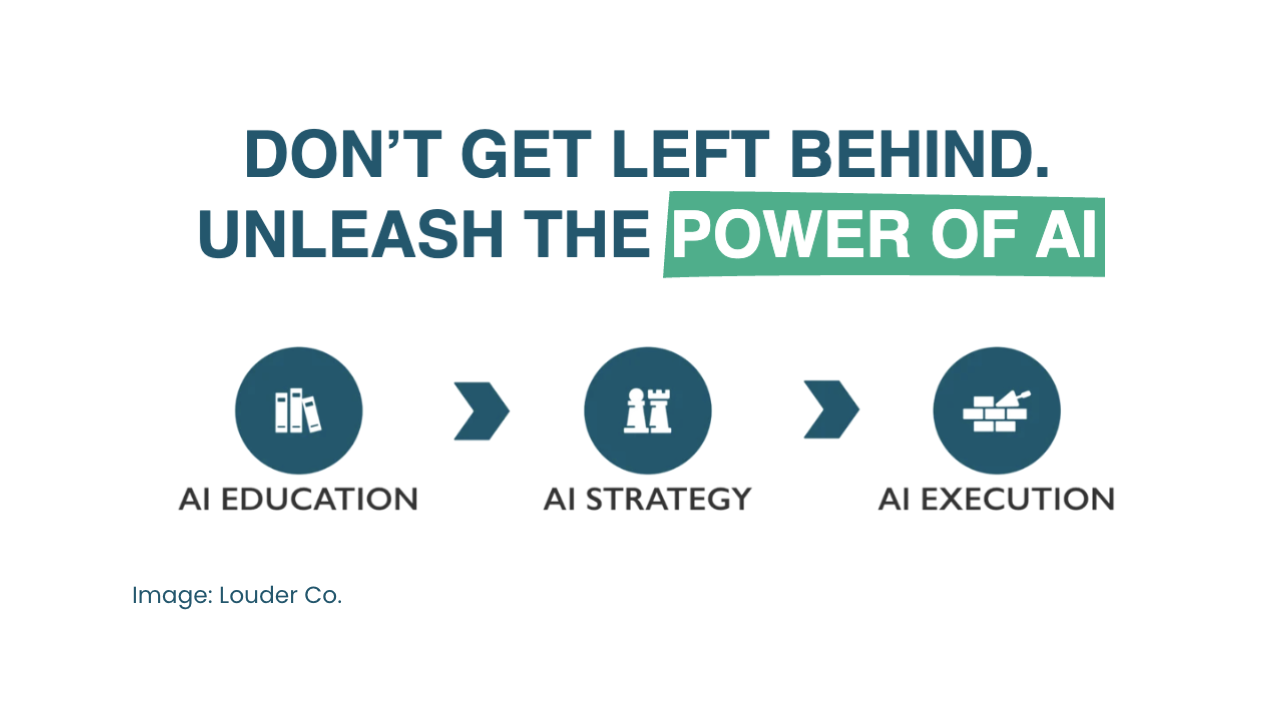
Contents

AI has become an indispensable tool for organizations looking to innovate, scale, and stay competitive. However, leveraging AI’s full potential requires more than simply implementing cutting-edge technology. It demands thoughtful, strategic leadership to ensure AI initiatives not only deliver results but also align with long-term business objectives.
This is where the role of an AI lead becomes critical. More than a technical expert, the AI lead is the strategic visionary who orchestrates the entire AI journey within the organization. Their responsibilities span a broad spectrum—from selecting the right AI systems and managing their implementation to overseeing change management and workforce education. The AI lead ensures that AI initiatives are seamlessly integrated into the company’s operations and that these initiatives drive both efficiency and innovation while staying aligned with broader business goals.
In this blog, we’ll explore the vital importance of having an AI lead as part of your AI strategy, the key qualities that make an AI lead successful, and the potential risks of not having someone in this essential role.
Defining The Role Of An AI Lead
Implementing AI within an organization is a complex, multifaceted process that requires meticulous coordination across multiple departments and systems. From choosing the right tools and platforms to integrating AI into daily operations, there are numerous moving parts to manage. Without strong leadership, these efforts can easily become fragmented, leading to inefficiencies, miscommunication, and a failure to meet strategic business objectives. This is why a dedicated AI lead becomes crucial to the success of any AI initiative.
An AI lead serves as the central figure who orchestrates the entire AI journey, ensuring that every phase—from initial planning and tool selection to deployment and ongoing management—aligns with the company's broader strategy. They act as the primary point of accountability, overseeing the execution of AI projects while maintaining a focus on long-term goals. By having a dedicated leader in place, organizations can streamline decision-making, reduce potential bottlenecks, and ensure that all teams remain focused on the intended outcomes of AI integration.
In addition to overseeing day-to-day operations, an AI lead takes a more strategic, big-picture approach to AI implementation. They provide a holistic view of how AI supports the company’s overall digital transformation, ensuring that AI initiatives are not just isolated projects but part of a cohesive strategy that drives long-term growth. With the ability to foresee challenges and proactively address them, an AI lead ensures that AI initiatives deliver tangible improvements in efficiency, innovation, and competitiveness. Ultimately, the AI lead is responsible for embedding AI into the organizational fabric, making certain that the technology generates sustainable value and positions the company for future success.
Key Qualities To Look For In An AI Lead
The AI lead will occupy a highly visible role, interacting with individuals across the organization who have varying levels of AI proficiency. To ensure success, it’s essential to thoroughly vet candidates for this position, as their recommendations and guidance will have a direct impact on business outcomes. The ideal candidate should be a motivated learner with a strong blend of strategic leadership skills, capable of effectively guiding the organization's AI initiatives.
While technical experience is a plus, it's not required for the AI lead role. What matters most is that the individual is a self-starter with a strong willingness to learn. Taking courses, staying updated on new tools and features, and collaborating with AI specialists from a consultancy can help them develop the necessary expertise. Their knowledge should be broad enough to effectively oversee projects, make informed decisions, and address technical challenges as they arise. For example, when evaluating AI tools for data analysis, the AI lead should be able to assess various options, determine the best fit for the organization, and ensure that implementation is efficient and minimally disruptive. Additionally, their foresight should enable them to anticipate potential challenges, like data quality issues or integration hurdles, and proactively solve them to ensure smooth and successful AI adoption.
From a leadership perspective, an AI lead must also possess strong change management skills. AI adoption often brings significant shifts in processes and organizational culture, and the AI lead must guide teams through these transitions, managing resistance and ensuring seamless system integration across departments. Equally important is the ability to have strategic vision. An AI lead must align AI initiatives with long-term business objectives, moving beyond short-term wins to drive innovation, boost efficiency, and support sustainable growth—ensuring the company remains competitive in a rapidly evolving landscape. Strong communication skills are crucial for clearly conveying strategic objectives and ensuring teams and departments are aligned. Moreover, these skills empower the AI lead to educate others about AI tools and processes, fostering a culture of collaboration and continuous learning throughout the organization.

Risks Of Not Having An AI Lead
The absence of an AI lead presents significant risks that can hinder an organization's AI efforts. Without a central figure to coordinate initiatives, projects can become siloed, fragmented, and misaligned with overarching business goals. This fragmentation often leads to inefficiencies, duplicated efforts, and the adoption of incompatible tools or strategies across departments, making it challenging to deliver integrated, scalable solutions. As a result, organizations risk missing key deadlines and achieving suboptimal outcomes, falling short of the intended strategic impact.
Furthermore, without an AI lead to drive innovation, organizations may experience slower AI adoption, particularly in fast-moving, competitive industries. Competitors that invest in AI leadership are better positioned to leverage data-driven insights, enabling them to make faster, more informed decisions. In contrast, companies lacking a strong AI leadership structure risk falling behind, as they may struggle to implement advanced AI technologies—such as predictive analytics—into core business processes, ultimately losing valuable market opportunities to more agile, AI-driven competitors.
Effective system integration and securing employee buy-in are also pivotal to the successful implementation of AI solutions, and without focused leadership, change management efforts can quickly become disorganized, leading to heightened resistance across the workforce and prolonged implementation timelines. Moreover, without a central authority to address AI-related challenges and provide strategic guidance, teams may experience significant delays, confusion, and operational inefficiencies, ultimately impeding the organization's ability to fully capitalize on the transformative potential of AI.

The importance of having a dedicated AI lead cannot be overstated. This role is crucial for navigating the complex landscape of AI adoption, for companies of all sizes. By appointing an AI lead, businesses can start their AI journey with intention and accountability.
At Louder Co., we adopt a holistic approach to AI education, AI strategy, and AI execution, ensuring your business not only maximizes ROI but also successfully achieves its goals. If you're prepared to embark on your AI journey, contact us today! Together, we can transform the complexities of operational success into opportunities for growth and prosperity.


